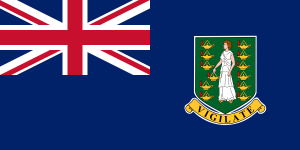Difference between revisions of "Language/Virgin-islands-creole-english/Grammar/How-to-Use-Be"
m (Quick edit) |
m (Quick edit) |
||
| Line 61: | Line 61: | ||
|description=In this lesson, we will learn how to use the verb "be" in Virgin Islands Creole English. We will look at the different forms of the verb and how to use them in sentences. | |description=In this lesson, we will learn how to use the verb "be" in Virgin Islands Creole English. We will look at the different forms of the verb and how to use them in sentences. | ||
}} | }} | ||
==Related Lessons== | |||
* [[Language/Virgin-islands-creole-english/Grammar/Gender|Gender]] | |||
* [[Language/Virgin-islands-creole-english/Grammar/Pronouns|Pronouns]] | |||
* [[Language/Virgin-islands-creole-english/Grammar/Give-your-Opinion|Give your Opinion]] | |||
* [[Language/Virgin-islands-creole-english/Grammar/Negation|Negation]] | |||
* [[Language/Virgin-islands-creole-english/Grammar/Questions|Questions]] | |||
* [[Language/Virgin-islands-creole-english/Grammar/Plurals|Plurals]] | |||
* [[Language/Virgin-islands-creole-english/Grammar/Conditional-Mood|Conditional Mood]] | |||
{{Virgin-islands-creole-english-Page-Bottom}} | {{Virgin-islands-creole-english-Page-Bottom}} | ||
Revision as of 23:56, 28 February 2023
Hi Virgin Islands Creole English learners! 😊
In this lesson, we will learn how to use the verb "be" in Virgin Islands Creole English. We will look at the different forms of the verb and how to use them in sentences.
Introduction
The verb "be" is one of the most important verbs in any language. It is used to describe states, actions, and relationships between people and things. In Virgin Islands Creole English, the verb "be" is used in a variety of ways.
Forms of the Verb "Be"
The verb "be" has three forms in Virgin Islands Creole English: "am", "are", and "is".
Am
The form "am" is used when the subject of the sentence is singular and first person. For example:
- I am a teacher.
Are
The form "are" is used when the subject of the sentence is plural or second or third person. For example:
- You are my students.
- They are from the Virgin Islands.
Is
The form "is" is used when the subject of the sentence is singular and third person. For example:
- He is a doctor.
- She is from St. Thomas.
Examples
Here are some examples of how to use the verb "be" in Virgin Islands Creole English:
| Virgin Islands Creole English | Pronunciation | English Translation |
|---|---|---|
| Mi am a teecha. | /mi ɑm ə tiːtʃə/ | I am a teacher. |
| Yu ar mi stuudents. | /ju ɑr mi stuːdənts/ | You are my students. |
| Dey ar frae di Virgin Islands. | /dei ɑr fre di vəːdʒin aiələndz/ | They are from the Virgin Islands. |
| Im is a dokta. | /im iz ə dɔktə/ | He is a doctor. |
| Shii is frae St. Thomas. | /ʃi iz fre seːnt tɔməs/ | She is from St. Thomas. |
Dialogue
Here is an example of a dialogue using the verb "be" in Virgin Islands Creole English:
- Person 1: Wey yu deh? (Where are you?)
- Person 2: Mi deh St. Croix. Mi am a teecha. (I'm in St. Croix. I'm a teacher.)
- Person 1: Wey dey deh? (Where are they?)
- Person 2: Dey deh St. Thomas. Dey ar frae di Virgin Islands. (They're in St. Thomas. They are from the Virgin Islands.)
Conclusion
In this lesson, we have learned how to use the verb "be" in Virgin Islands Creole English. We have looked at the different forms of the verb and how to use them in sentences. To improve your Virgin Islands Creole English Grammar, you can also use the Polyglot Club website. Find native speakers and ask them any questions!
➡ If you have any questions, please ask them in the comments section below.
➡ Feel free to edit this wiki page if you think it can be improved. 😎
